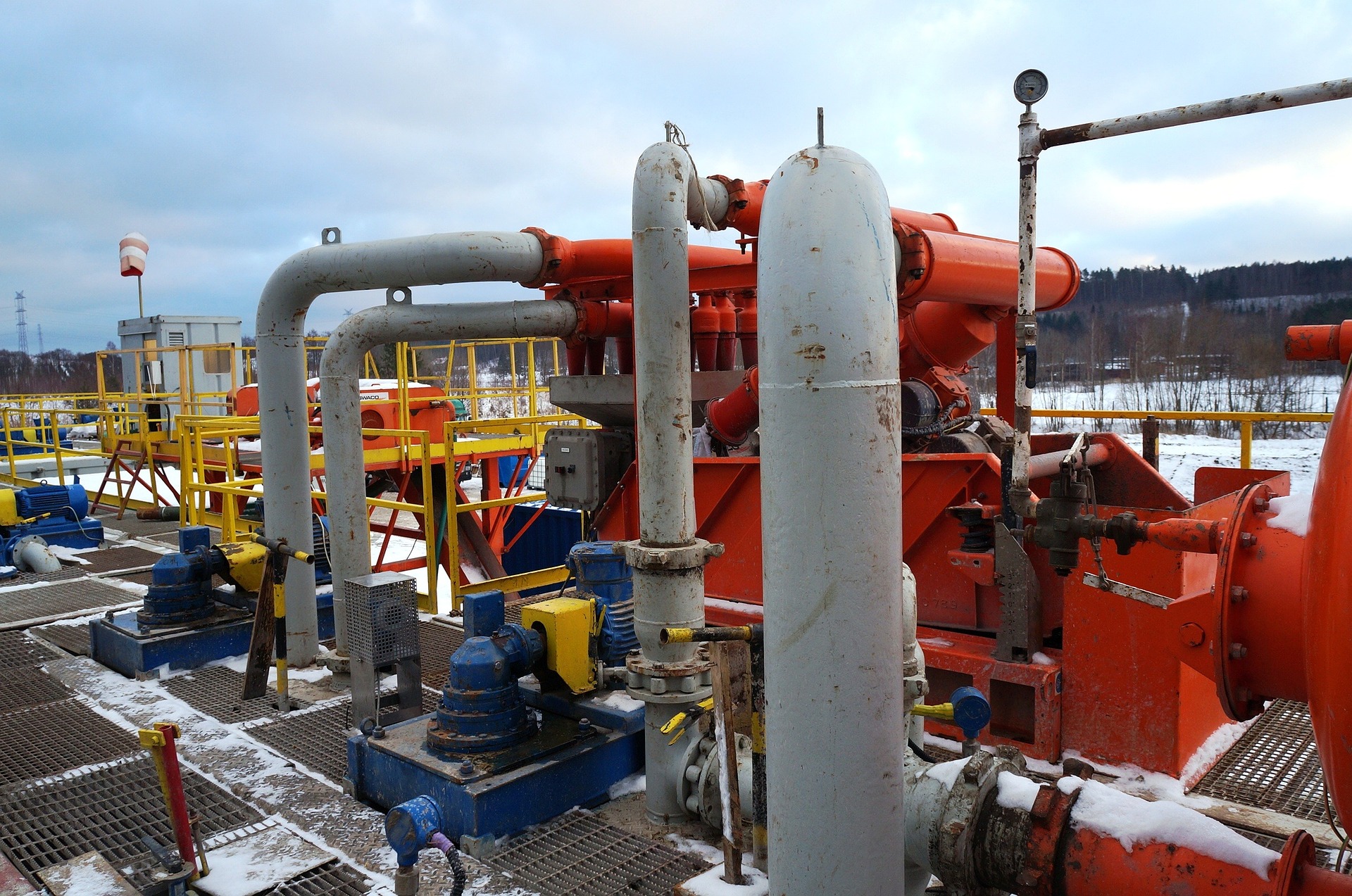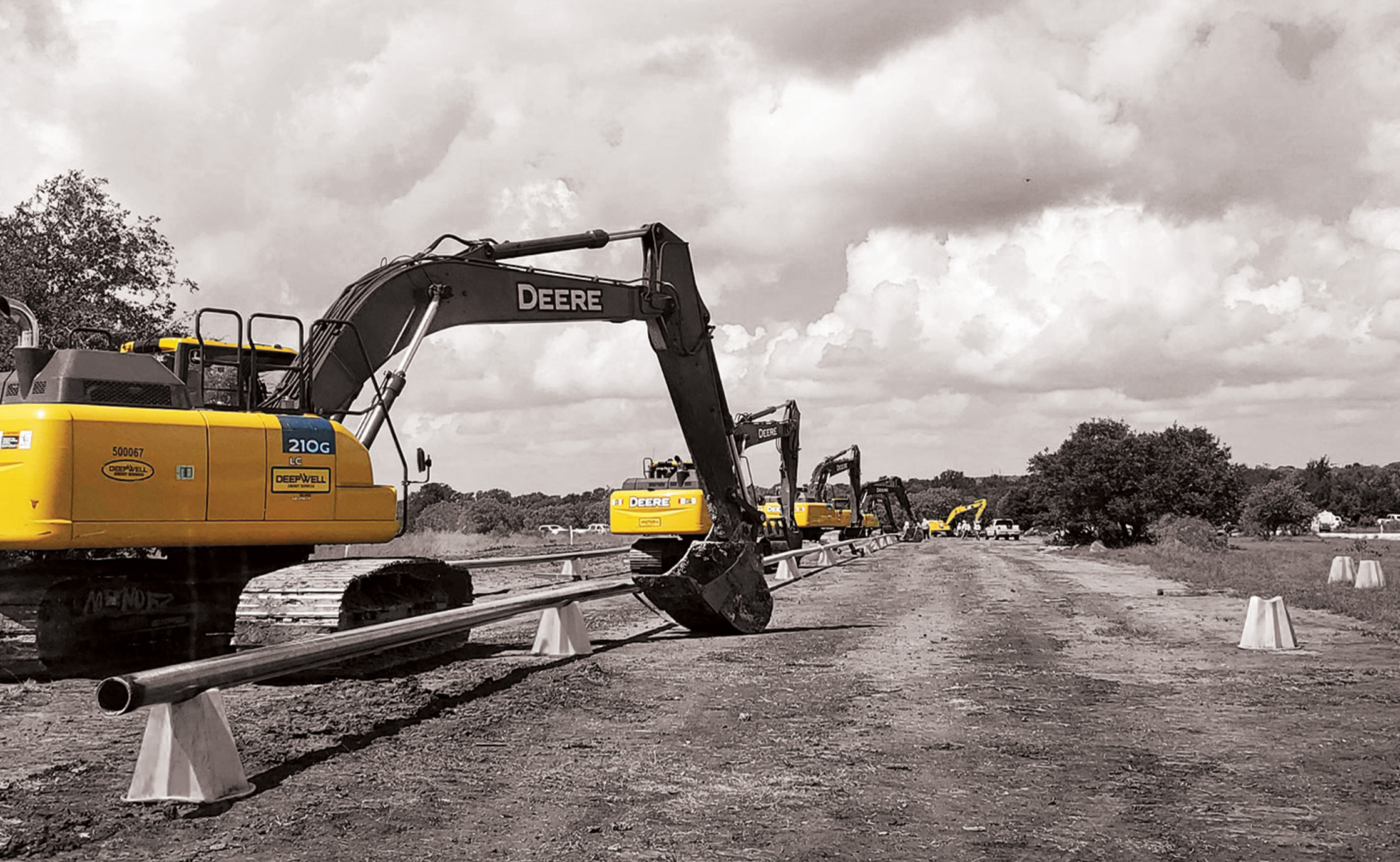A Comprehensive Overview to the Different Sorts Of Oil Field Equipment and Pipeline Equipment Available
The oil and gas market counts greatly on customized devices for efficient extraction and transport. Various types of equipment, from piercing rigs to storage tanks, play important functions in this complicated process. Each piece of equipment offers unique features that add to general operational success. Recognizing these elements is essential for any individual associated with the industry. As the market develops, so too do the modern technologies that support it. What innovations are on the perspective?

Drilling Rigs: The Backbone of Oil Exploration
Drilling rigs offer as the important equipment in the domain name of oil exploration, allowing firms to access hydrocarbon gets buried deep underneath the Earth's surface. These rigs can be found in various kinds, consisting of land rigs, offshore rigs, and mobile units, each developed to operate in details environments. Geared up with innovative technology, drilling rigs can pass through geological formations with precision, guaranteeing reliable source removal. The structural honesty and functional capabilities of these rigs are crucial, as they should hold up against severe problems and considerable stress. Additionally, the option of a drilling gear impacts the general job price and timeline, making it an essential factor to consider for oil firms seeking to enhance their exploration initiatives and optimize efficiency in their procedures.
Pumps: Necessary for Liquid Movement
In the oil extraction procedure, the function of pumps is significant, helping with the activity of liquids throughout numerous phases of manufacturing. Pumps are crucial for moving petroleum, water, and various other fluids from underground reservoirs to the surface and after that through pipelines to refineries. They can be found in numerous kinds, including centrifugal, positive variation, and completely submersible pumps, each serving specific functions based upon the liquid characteristics and functional needs. Centrifugal pumps are frequently utilized for their effectiveness in high-flow applications, while positive displacement pumps succeed in taking care of thick liquids. The option of pump influences total performance, functional safety, and maintenance costs. Correct selection and upkeep of pumps are crucial for optimizing production and decreasing downtime in oil field operations.
Shutoffs: Controlling Flow and Pressure

Shutoffs play an important role in taking care of the circulation and pressure of liquids within oil areas and pipelines. Different kinds of valves serve unique applications, each made to fulfill details features fundamental for efficient operation - Superior Oilfield Rentals. Understanding the attributes and uses of these valves is necessary for maximizing system efficiency and security
Kinds of Valves
Important elements in oil area procedures, shutoffs play an essential function in regulating the circulation and pressure of fluids within pipelines and equipment. Different sorts of shutoffs are made use of to fulfill the diverse needs of oil and gas manufacturing. Common types include gateway valves, which offer a straight-line flow and very little pressure decrease; globe shutoffs, understood for their throttling capabilities; and ball shutoffs, acknowledged for their quick on/off control. Additionally, check valves prevent backflow, while butterfly valves offer a lightweight solution for regulating flow. Each valve kind is created with particular materials and arrangements to hold up against the extreme conditions frequently found in oil fields, ensuring integrity and effectiveness in operations. Understanding these types is critical for effective system management.
Valve Applications and Functions
While various sorts of valves offer distinctive purposes, their primary applications revolve around managing flow and stress within oil and gas systems. Shutoffs such as entrance, world, and ball valves manage liquid activity, making sure peak performance and safety. Entrance shutoffs are typically used for on/off control, supplying minimal flow resistance. World valves, on the other hand, deal specific circulation policy, making them ideal for throttling applications. Sphere shutoffs are favored for their quick procedure and tight sealing capabilities. Additionally, stress safety valve are crucial for preventing system overpressure, securing tools integrity. Generally, the ideal selection and application of shutoffs boost functional effectiveness, guaranteeing the reliable transportation of oil and gas via pipelines and processing facilities.
Compressors: Enhancing Gas Transport
Compressors play a critical role in the efficient transport of gas, making certain that it relocates smoothly with pipes over fars away. These devices raise the stress of gas, permitting it to get rid of rubbing and elevation adjustments within the pipeline system. In addition, compressors promote the balancing of supply and demand, accommodating changes in intake and production rates. Various kinds of compressors are used in the market, consisting of centrifugal, reciprocating, and rotating screw compressors, each offering unique benefits based upon the operational needs. Normal maintenance of these compressors is necessary to take full advantage of efficiency and decrease downtime, ultimately adding to a trustworthy gas transportation network. Their important feature emphasizes the significance of compressors in the overall oil and gas facilities.
Storage Tanks: Safe and Effective Fluid Administration
Reliable transport of gas relies on various support group, among which is the proper monitoring of tank. These tanks play an essential duty in securely having liquids, making sure that operational efficiency is kept while lessening environmental threats. Built from resilient products, they are made to stand up to high pressures and harsh elements. Effectively sized and purposefully located, storage space tanks facilitate the smooth circulation of gas and various other fluids, protecting against traffic jams in supply chains. Normal maintenance and surveillance are essential to detect leakages or structural concerns, advertising security and conformity with regulatory requirements. Inevitably, the efficient monitoring of storage tanks is critical for the general integrity and integrity of the oil and gas market's liquid handling systems.
Pipeline Systems: Facilities for Transportation
Pipeline systems act as the foundation of the oil and gas industry, promoting the effective transportation of hydrocarbons over huge distances. These systems include various parts, including pipelines, valves, pumps, and compressors, all diligently developed to guarantee smooth flow. The products utilized in pipeline building and construction, usually steel or high-density polyethylene, are selected for resilience and resistance to corrosion. Pipeline networks can cover throughout land and water, attaching production websites to refineries and distribution centers. Furthermore, advanced innovation allows real-time surveillance of circulation rates and pressure degrees, improving operational efficiency. The critical placement of these pipelines decreases ecological effect here while taking full advantage of source ease of access, consequently playing an essential role in conference power needs globally.
Safety And Security Equipment: Making Sure Worker and Environmental Management
The operation of pipeline systems, while necessary for energy transport, also presents considerable safety challenges for employees and the atmosphere. Security equipment plays a significant duty in minimizing these dangers. Personal safety tools (PPE) such as helmets, handwear covers, and non-slip shoes safeguards workers from physical hazards. In addition, gas detection systems monitor for leakages, making sure that damaging substances do not pose a threat to personnel or the surrounding community. Emergency closure systems are vital for swiftly halting operations throughout a crisis, protecting against prospective disasters. Spill containment products, including absorbents and obstacles, are fundamental for lessening environmental influence. In general, purchasing all-inclusive safety devices is crucial for preserving functional honesty and safeguarding both employees and the atmosphere in the oil and gas field.

Often Asked Concerns
Exactly how Do I Select the Right Oil Field Equipment for My Job?
Selecting the best oil field tools entails reviewing task requirements, budget plan restrictions, and operational needs. Take into consideration factors such as equipment dependability, compatibility with existing systems, and the vendor's online reputation to assure peak efficiency and safety.
What Are the Maintenance Demands for Oil Field Equipment?
Maintenance needs for oil area equipment include regular evaluations, lubrication, and prompt fixings. Operators must likewise adhere to maker guidelines, monitor efficiency metrics, and assurance compliance with safety and security guidelines to boost long life and efficiency.

Exactly How Can I Guarantee Conformity With Environmental Laws?
To assure compliance with ecological regulations, business should perform routine audits, apply best practices, purchase training, maintain proper documents, and remain updated on legislation (Superior rentals squeeze tools). Collaboration with ecological firms can additionally improve adherence to laws
What Is the Ordinary Life Expectancy of Pipeline Equipment?
The ordinary life-span of pipeline equipment normally varies from 20 to 50 years, depending upon aspects such as worldly high quality, environmental conditions, and upkeep methods. Regular examinations can significantly influence durability and functional performance.
Just how Do I Securely Transport Oil Field Equipment to Remote Locations?
Moving oil area devices to remote places requires cautious preparation, consisting of course analysis, protecting licenses, using ideal lorries, and ensuring safety and security methods are adhered to. Proper training and communication amongst teams are important for effective transportation.